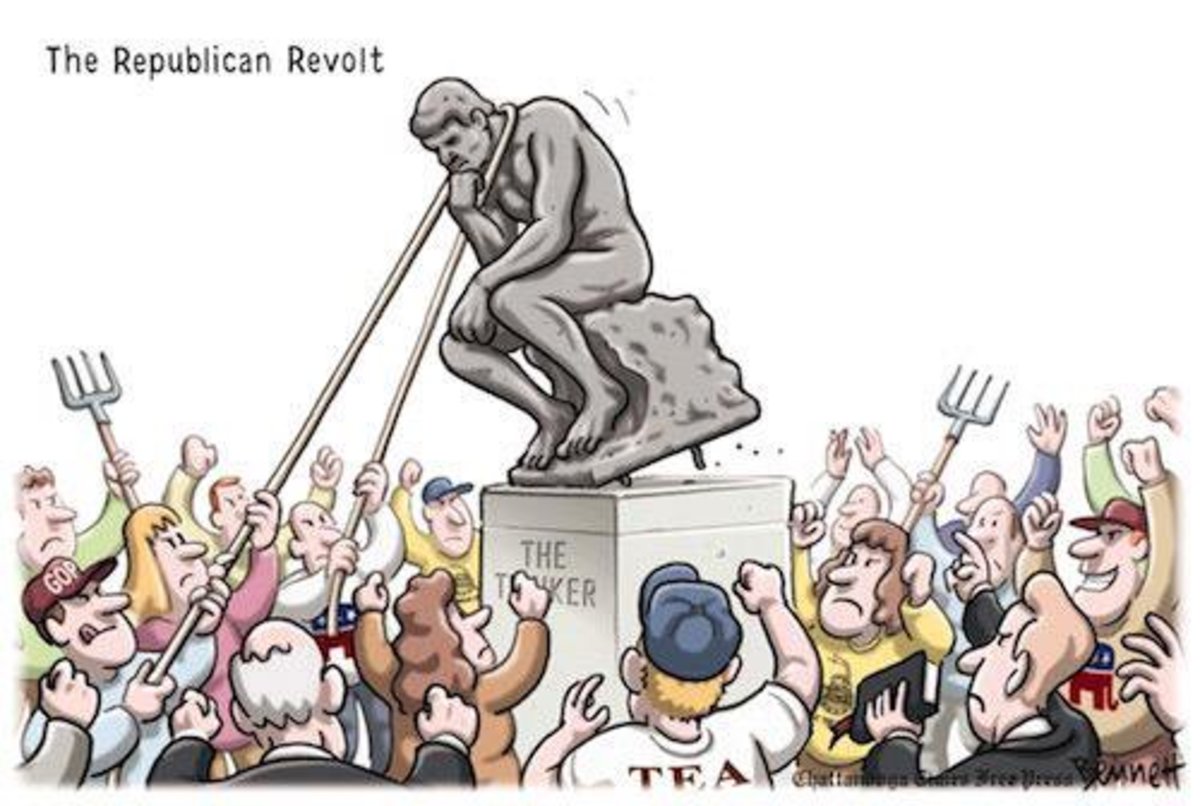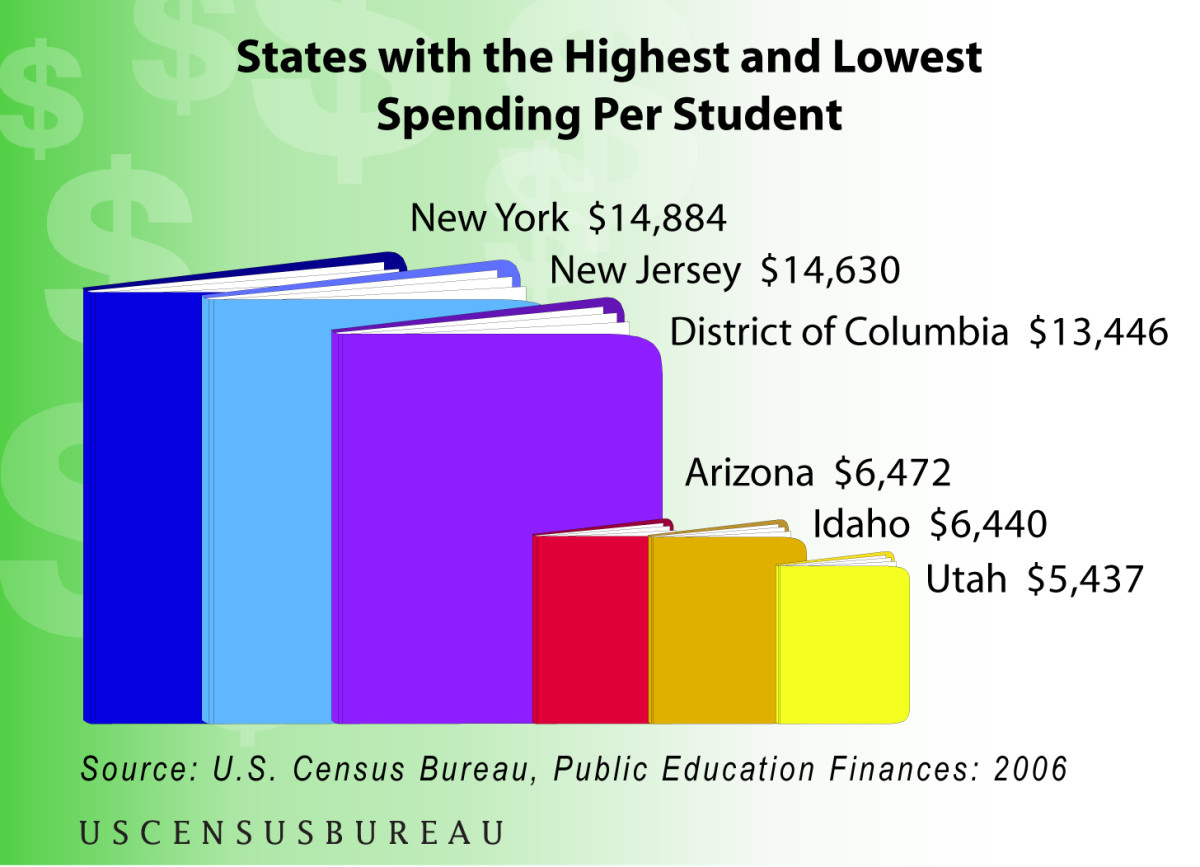What is Progressive Politics
Ways to Help People

Party Politics
Here in the United States of America we have two main political parties. On the left side of the political aisle we have Democrats and on the right side we have Republicans. Sometimes the distance between these two parties can be the root of controversy even though deep down inside we are all Americans.
The term “progressive” typically refers to the beliefs held on the Democratic side of politics; the word itself can be described in a few different ways. Change, reform, improvement or an opposition to maintaining things as they are can all be associated with progressive politics.
With the phrases used by everyone who talks politics it can be difficult to truly understand what side, or movement, is actually being discussed.
Political affiliation poll
What side of the political aisle do you consider yourself to be on?
Political Terminology
If you pay any attention to politics the words progressive and liberal are used quite often, unfortunately both seem to be referenced in negative connotations because people do not agree with the political positions shared by progressives or liberals. As I shared earlier the word progressive is not a bad word based on what the dictionary says. The word liberal has also gotten a bad rap by how people use it in the political world because liberal can be described as being unprejudiced, charitable or even generous; nothing scary in any of those definitions in my opinion.
Progressive Movements
Progressives believe in a sort of equality for all; they believe that the government has a role in this equality. There has been a bunch of debate about this position because the Republican side of the aisle usually feels that the government should have as small of a role as possible in our lives.
Where the two sides really butt heads is when either political party feels that their foundation is being eroded. Republicans will get upset when they think the government has overstepped its bounds and Democrats will be unhappy when they see the government not doing enough. It is just a piece of the fundamental differences between the two parties.
Economic Growth Rate
Obviously the economy has been a big topic of discussion because of the recession that started back in 2007. Much of the debating has been focused on how the recession started and what steps should be taken to fix the problems. Progressives expect the government to participate in addressing economic problems, if they can assist in anyway.
Auto Bailout
An example of this was the auto bailout bill that was drafted by the Democratic House of Representatives and Congress, which was then signed into law by President George W. Bush back in late 2008. Many Progressives argued the need for this bill to save General Motors and Chrysler from certain demise. The other side of the political aisle was content with allowing these two auto manufacturers to go away and negatively affect an already hurting economy. Progressives understood that the loans might never be repaid fully but that was an acceptable sacrifice when the alternative was both of these companies, the auto dealerships and the parts suppliers they contracted with all suffering substantial loses or closing their doors.
The Center for Automotive Research released a report near the end of 2010 stating that the bailout bill saved more than one million jobs. Personally I do not want to think about how our economy would have continued its free-fall if another million Americans hit the unemployment ranks at the same time.
Health Reform Act
Much has been said about the Affordable Health Care for America act, or Obamacare, and its constitutionality as well as if the majority of Americans really want it. The Progressive position has been one of support because of the recognition that millions of Americans do not have health insurance. Many people admit that preventative costs are much more affordable than major costs down the road. A similar comparison is how much it costs to go to the doctor for a routine checkup versus a visit to the emergency room. If you were one of the millions with no insurance you had no choice but to wait until a small issue became a big one and led to an emergency room visit.
Personal Tax Rates, and the Buffett Rule
A big Progressive position right now is getting all Americans to pay what they should be paying in taxes. A point of contention is the dividend tax, which is 15%. With so many millionaires getting substantial portions of their income through stock dividends they are, at the end of the day, paying a small portion of their income to taxes.
The Buffet Rule came into play when Warren Buffet made a speech declaring that he actually paid a smaller percentage of taxes than his secretary did. Mr. Buffet pays a larger overall sum than his secretary but the debate has been going on regarding the percentage.
Millionaire Presidential candidate Mitt Romney is a good example of the system rewarding people with large amounts of financial resources. According to his 2010 and 2011 tax returns Romney earned around forty-two million dollars in those two years but only paid six million dollars in taxes; simple math shows us that his tax rate was just over 14%. In comparison my family of four, who almost grossed one hundred thousand in 2011, had a tax rate over 15%. Progressives feel that this isn’t part of everyone paying their fair share.
Government Welfare
Welfare, and who is eligible for welfare benefits, is another core Progressive position. Progressives believe welfare programs are essential to anyone who has fallen on tough times and needs that extra support. The opposition to welfare will claim that people on welfare are bums or too lazy to work; that is a very short sighted view of the people on these programs.
I had a disagreement with a Republican friend many years ago about welfare. He said that the Republican position was each person was responsible for any problems and needed to plan accordingly. I asked him what would happen if the only one working in the family was killed in a car accident one day, what would happen to that family if there were no welfare programs? His answer floored me, he said that was their problem and they should have had a contingency plan in place for such an emergency. The Progressive position is more along the lines of extending a hand to these families in need.
I will openly acknowledge that some people on welfare abuse the system. If it is acceptable to call them lazy, because they are taking advantage of the system, than I think the same opinion should apply to the people who work for corporate America who check Facebook, Twitter or their Fantasy Football team at work. They are getting paid to do a job and they are not working when they are doing these tasks right? If lazy is too tough of a word how about thief since they are getting paid to do their job and they aren’t doing it?
Political Parties in the United States
Political Progressive
These men and women get the “liberal” label and are dismissed because of their Progressive views. Knowing what we all know now about the word Progressive are these individuals really as bad as some people, and news channels, want us to believe or could they be just folks who have a different view on things?









